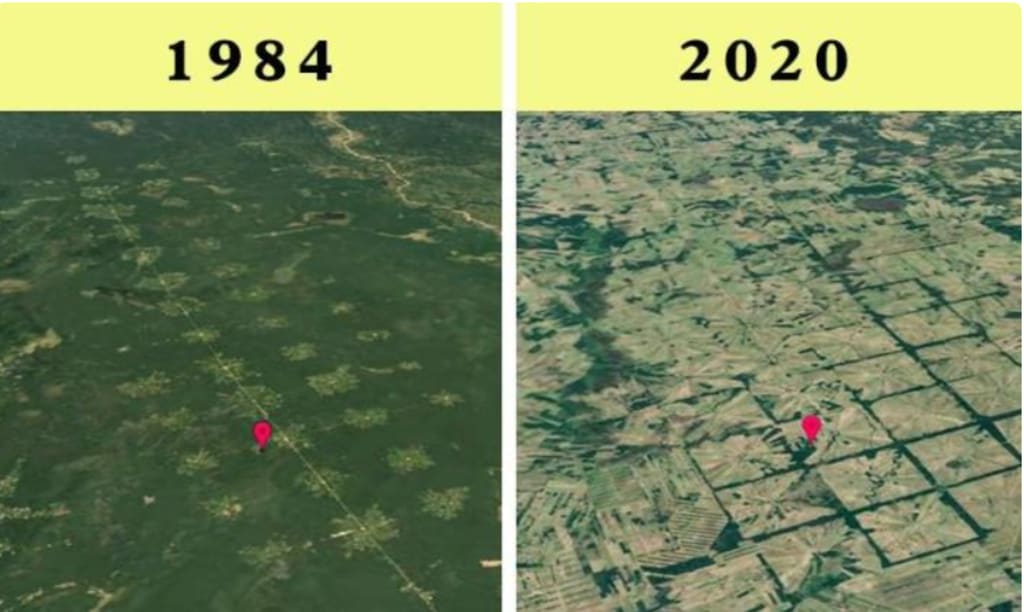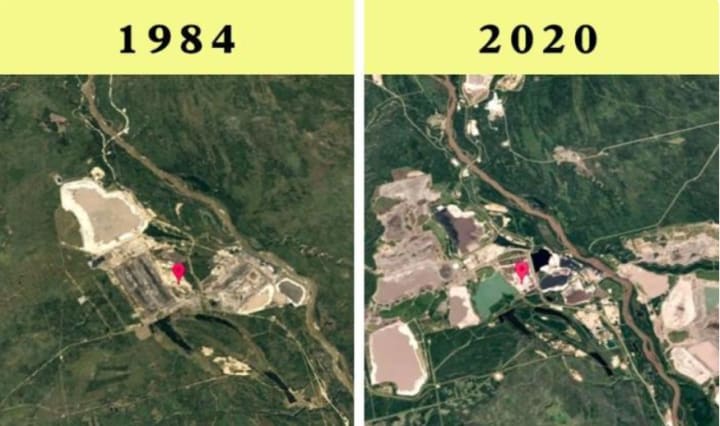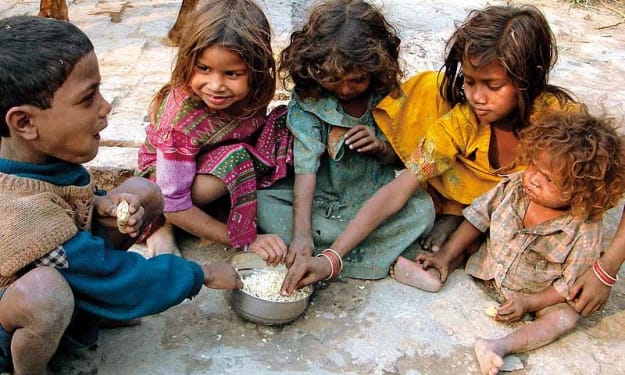
If we talk about disasters on earth, you may more easily think of natural disasters such as tsunamis, volcanoes, and earthquakes. However, because of the continuous human intervention, some unnatural changes are happening continuously. In the past 40 years, through image records, and scientific and technological detection, we can find that this change is intensifying. But at the same time, human beings have also made a lot of actions to improve environmental pollution for this reason. In today's article, I have compiled, because of human actions or for some reason, 10 changes that have occurred on the planet over the decades.
1、Deforestation brought about by soybean cultivation
The Amazon rainforest is called the "lungs of the earth", however, in recent years, the Amazon region has suffered great damage, especially the burning of forest fires. In addition, some human factors have caused damage to it. Brazilians to get more cultivation area to plant soybeans, deforestation of a large number of forests.
2、Solar photovoltaic power plant
Low-carbon environmental protection has been advocated in recent years the way of life, but wanting to achieve this is not easy. And to be able to clean, environmentally friendly way to obtain renewable energy from nature becomes very important, throughout the world, renewable energy field we and the United States, Japan, and Germany belong to the first echelon of development, more and more countries are beginning to join them. The picture above shows the change in solar power plants built in China. This change is beneficial to curb global warming.
3、The emergence of new islands
In the past few decades, mankind's ability to build infrastructure has advanced by leaps and bounds. With the help of modern technology is even able to create islands. There are cases of island reclamation all over the world, which is more well-known is the island of Dubai. As the world-famous "capital of the rich", Dubai attracts not only a large number of tourists, but also many migrant workers, and in 1990 there were only 500,000 inhabitants, but in 2020 this number reached 3.3 million. While the population is growing, Dubai is also looking for ways to increase its land area. They have created a series of artificial islands, such as the Palm Islands and the World Islands. Adding more than 300 kilometres of coastline and inland to the city.
4. The destruction of oil sands deposits
The exploitation of natural resources by mankind has always been great harm. An example is the existence of oil sand deposits. This is because hydraulic fracturing requires the extraction of oil from these sands, which requires the use of large amounts of energy and water. Not only that, but it releases large amounts of toxic and polluting agents into the water and even into the air. Oil sands are an unconventional source of oil. They have become a strategic resource and their exploitation is becoming more and more common. This is because, although conventional oil is easier to extract, it is also becoming increasingly scarce.
5、Changing glasses of water: Lake Nation in Tanzania
When you look at the earth's landscape through mapping software, you are likely to misidentify some things, such as seeing some lakes as land, because they present a different color from ordinary lakes. For example, Lake Nation in Tanzania has a pink loading due to temperatures reaching 40°C and pH alkalinity of over 12. This is a very dangerous lake, but depending on the season, algae and bacteria reproduction can cause the color of the lake to change.
6、The Great Green Wall of China
Although many parts of the earth's forests are being destroyed and reduced, in our country, decades of efforts to create the "Great Green Wall" shocked the world. Through the efforts of many silent tree planters, many fortified lands have been revitalized and turned into real oases.
7、The glaciers that are melting and disappearing
Global climate change has led to the melting of the Earth's glaciers, such as the above picture shows the Columbia Glacier in the United States, decades of rising temperatures have led to the rapid melting of the glaciers, which has become a river. Such a change is very dangerous because it will lead to a rise in sea level, thus flooding the coastal land. And some of the smaller glaciers that have melted and floated out with the glaciers have also posed a danger to sailing ships.

8, abandoned crops into a green forest
Because of the collapse of the Soviet Union, a large number of crops were abandoned. Over time, nature took over again and turned these places into green forests again. Of course, in the absence of human reforestation intervention, this change is very slow.
9、Shrinking lakes
The Aral Sea, located between Kazakhstan and Uzbekistan, is rapidly shrinking to the point of almost disappearing under the condition of man-made alterations. The Aral Sea originally belonged to the world's 4th largest lake, but due to this reconstruction project carried out by the Soviet Union in 1960, the water flow of the lake was redirected to irrigate crops, resulting in most of its waters drying up and disappearing.
10、Antarctica slowly melting
Global warming is so deadly that the glaciers of perennially cold Antarctica are also experiencing glacial melting problems. The National Science Foundation estimates that if the glacier melts and discharges its melt water into the ocean, sea levels will rise by about 61 meters. Unfortunately, the Pine Island Glacier is the fastest melting glacier in Antarctica, and it is responsible for about 25% of Antarctica's glacial loss.
About the Creator
Bar wall
Countries people need science, not scientific development, will certainly become a colony。






Comments
There are no comments for this story
Be the first to respond and start the conversation.